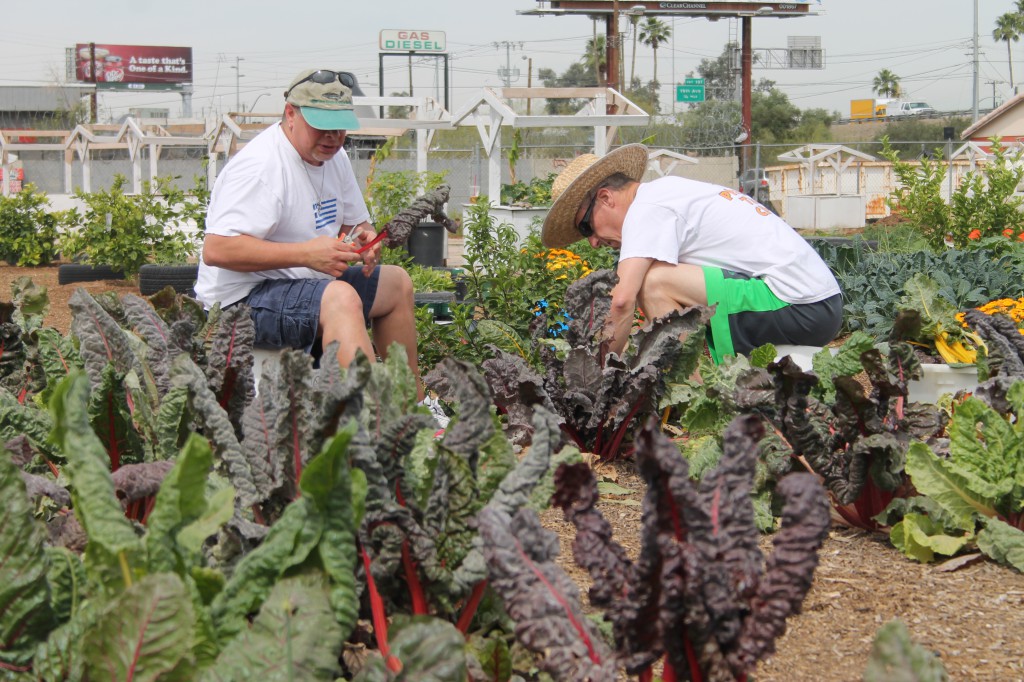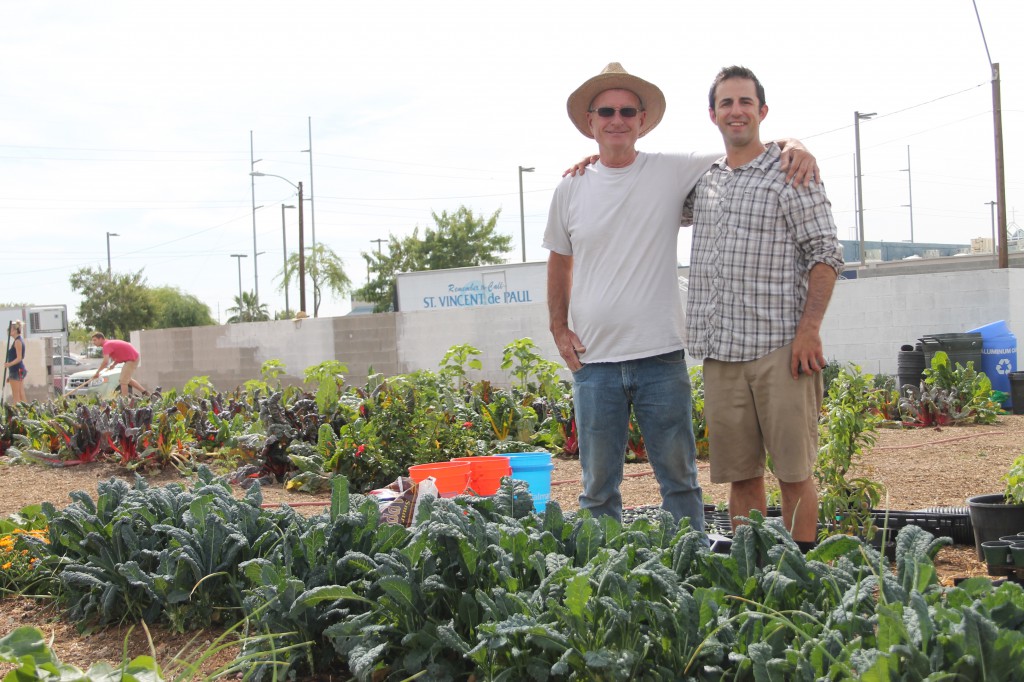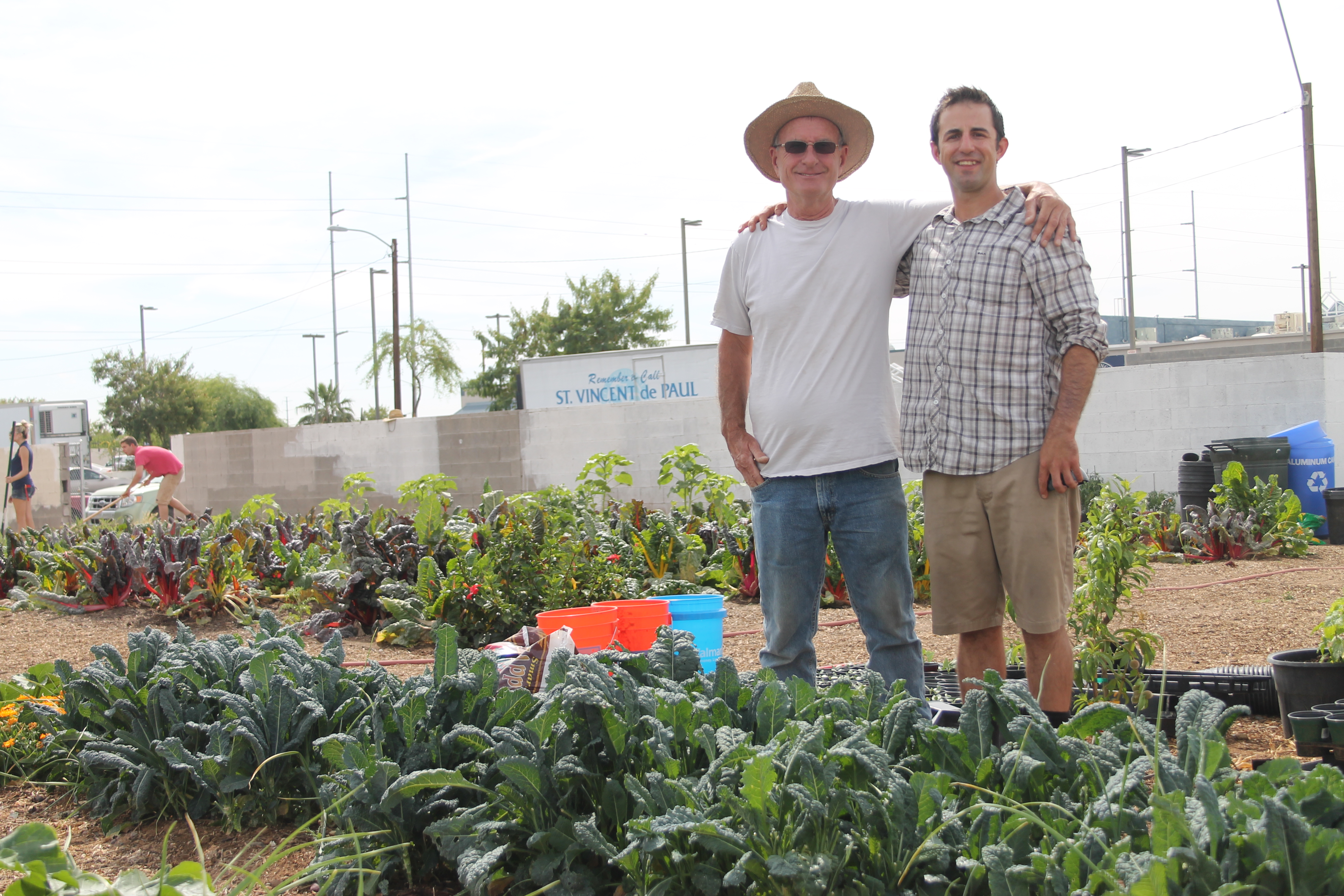
Not every meal at St. Vincent de Paul’s five dining rooms comes from a nonperishable box or a can. More and more of them are fresh from the organization’s own garden.
Fruits of the garden effort are not solely measured in terms of produce. St. Vincent de Paul’s urban garden has increased the nutritional value of dining room meals, inspired kitchen staff to experiment with recipes from scratch, formed community partnerships and added another one-and-a-half acres of space at St. Vincent de Paul’s main campus where volunteers can get involved.
“From a culinary and nutritional standpoint, we couldn’t ask for anything better,” said Jay Baker, kitchen manager at St. Vincent de Paul’s main campus.
He called the garden a blessing because fresh ingredients are a cook’s top choice. The staff and volunteers now mix up fresh kale and other types of lettuce from the garden with iceberg, cabbage and other produce secured from donors and food reclamation.
Volunteer gardeners grew enough kale for Baker to serve a kale salad that could just as easily go on a fine dining menu. He said the salad with blueberries, goat cheese and a citrus vinaigrette was a hit with everybody.
“There were people who wouldn’t eat kale who had to try it,” Baker said.
Dining room guests also sampled other vegetable side dishes such as fried chard or kale mixed with herbs or either leafy greens mixed with white wine and butter. The Thanksgiving menu will feature a sweet potato casserole and mixed greens and kale from the garden.
The desire — or in this case, the need — for fresher food came via a health issue for Tony Kasowski, one of two master gardeners tending the soil not far from I-17 and 7th Avenue. He began going to farmer’s markets and his newfound passion grew from there.
“We’re probably harvesting 2,000 pounds of food that’s been going right back to the dining room,” Kasowski told The Catholic Sun this spring when the garden was six months old.


It’s now about a year old with efforts from Boy Scouts who dug irrigation, master gardeners who provided the seeds and regular pulverized juice donations from Kaleidoscope Juice to create a nutrient-rich soil all helping get the garden out of the ground. Gardeners, whether master or amateur, harvest everything from a wide array of lettuce to herbs, beets, radishes, cucumbers, onions, peppers, tomatoes and citrus.
“It’s valuable not only to the community members, but to the earth,” Kasowski said of the pesticide-free garden.
A smaller garden at Phoenix’s Human Services Campus downtown — where St. Vincent de Paul serves lunch almost daily — has seen clients become volunteer gardeners.
“They had a sense of purpose that day,” said Jim Denis, another master gardener.
He said it gave them a place of safety and allowed some with gardening or farming in their family history to connect with their roots. A related effort in a raised vegetable garden at St. Vincent de Paul’s transitional shelter for older adults bears similar fruit.
Kasowski finds the smell of wet mulch calming and cited a study that showed it’s an anti-depressant.
“A lot of the staff come out here to decompress and get away from the computer screens,” he said. Kasowski sees the garden’s value as generating a job or skill set for St. Vincent de Paul clients.
Aimee Reither wasn’t looking for a skill set, but a connection with nature. She began volunteering in the garden at least weekly earlier this year. It provides a time of quiet meditation and helps her see where food comes from to support a renewed focus on healthy food choices.
“Our food is our medicine and people are just starting to realize that. Nutrition is so important,” Reither said.
Kasowksi loves that so many are passionate to learn and be involved. He said the effort is putting more nutrients into the soil and regenerating a relationship with underserved and homeless clients.
[quote_box_center]
Related articles:
Urban farm in the desert (St. Vincent de Paul)
Growing community and harvesting wellness (St. Vincent de Paul)
Farmers of Faith (Knights of Columbus Columbia magazine)
Catholic cardinal on the ‘vocation to agriculture’ (National Catholic Reporter). Cardinal’s full address.
[/quote_box_center]






